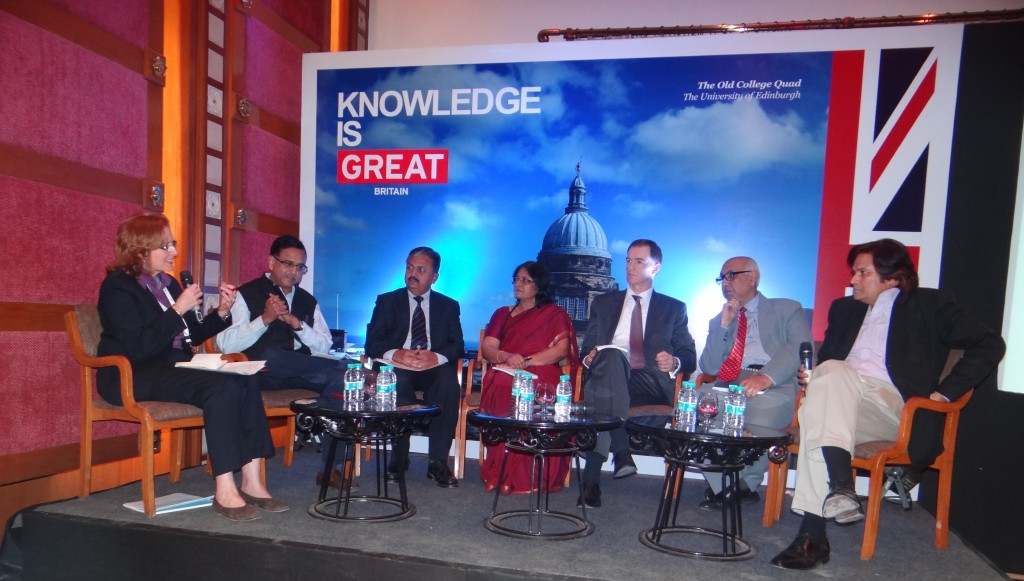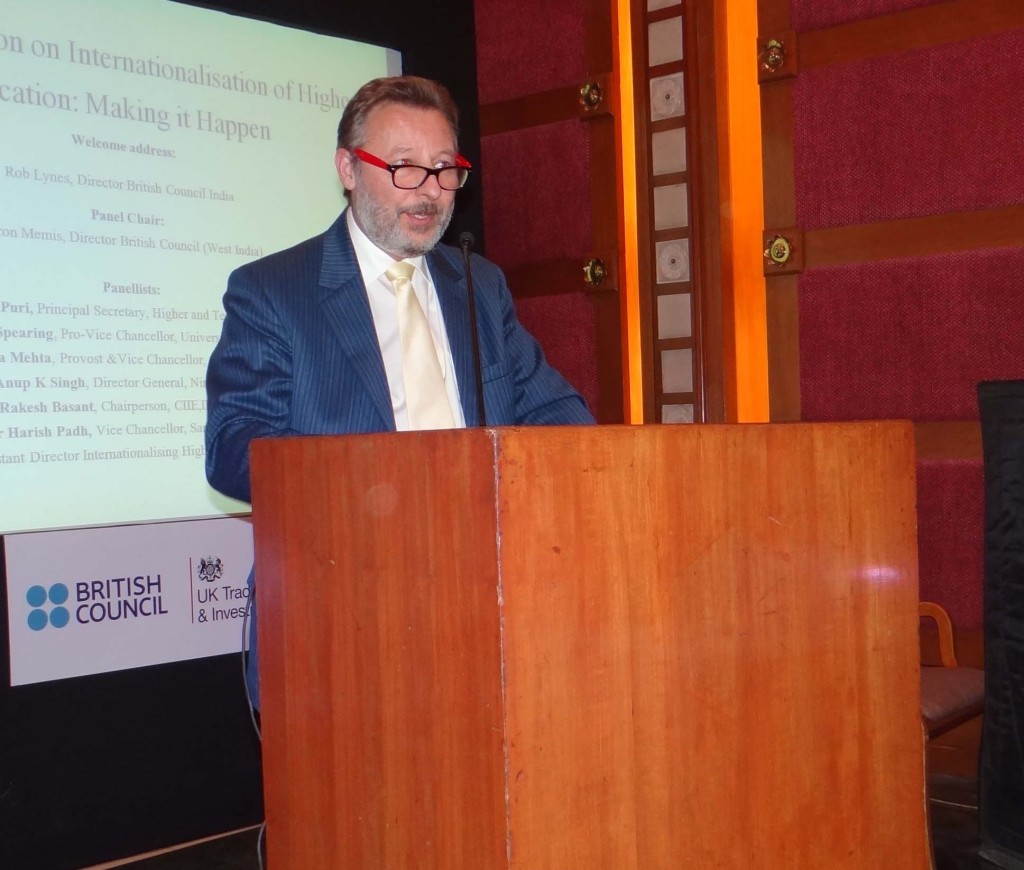Ahmedabad, 12 January 2015: Even as Gujarat opens the largest trade Summit held by the government, academicians from UK and India got together to explore aspects of education which were linked to the future of young people across the world. At an energetic discussion on Internationalising Higher Education: Making it Happen held on Saturday 11 January, as part of the activities around Vibrant Gujarat Summit 201, a panel which included Mukesh Puri, Principal Secretary, Higher and Technical Education, Government of Gujarat, Professor Mark Spearing, Pro-Vice Chancellor (International), University of Southampton, Dr. Shailendra Mehta, Vice Chancellor, Ahmedabad University, Dr. Anup K Singh, Director General, Nirma University, Professor Rakesh Basant, Chairperson, Centre for Innovation Incubation and Entrepreneurship, Indian Institute of Management, Ahmedabad, Professor Harish Padh, Vice Chancellor, Sardar Patel University and Manjula Rao, Assistant Director Internationalising Higher Education, British Council India, debated diverse perspectives on this issue that has much relevance to the country’s growth.
Rob Lynes, Director India, British Council said, “The UK’s expertise in education and skill development has great synergy with the Governments’ ambitions in these areas. India is likely to be the third largest economy in the world and we are keen to bring partners together to work on collaborative projects to share the UK’s expertise and innovation.”
For every one international student coming to India there are 800 students from India going out to pursue options in higher education – with the maximum outflow in professional education and Science and Technology related subjects and not as much for humanities and Social Science. Chaired by Sharon Memis, Director British Council West India, the discussion explored the future of education in India.
The panellists highlighted the role of internationalisation to expand horizons in higher education for both students and teachers. It was evident that diversification of academic communities was imperative in the long-run.
It was felt that there was a strong need to create a mechanism to stratify universities and develop systematic methods for advising students. Across the world, the profile of higher education is changing and there is a need for internationalisation of education. Academic partnerships will only work only if mutual benefits are clear, incentives are strong and can demonstrate real benefits for both partnering organisations and students. Government intervention then is needed to facilitate the process and remove barriers in mobility.
Notes to Editors:
- The British Council is the UK’s international organisation for cultural relations and educational opportunities. We create international opportunities for the people of the UK and other countries and build trust between them worldwide. The British Council was established in India in 1948. The British Council is recognised across India for its network of 9 libraries and cultural centres. We offer a range of specialised projects in arts, education, exams, English language and society to audiences across India and more than 100,000 members. We also provide access to English language training and learning for both students and teachers, offer UK qualifications in India and enable opportunities to study in the UK. For more information, please visit www.britishcouncil.in
- With over three decades of a working relationship with Gujarat through Library services, projects in Health and Education, school programmes, services for International Education Marketing, research programmes such as UKIERI, English language training and partnerships, Arts projects and Corporate Training, the UK has a long standing connection with the State. We are committed to building on these relationships, working closely with the government to create more opportunities for both countries through strategic and academic collaborations.


